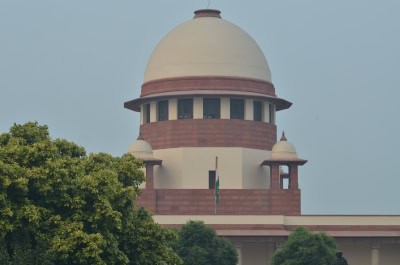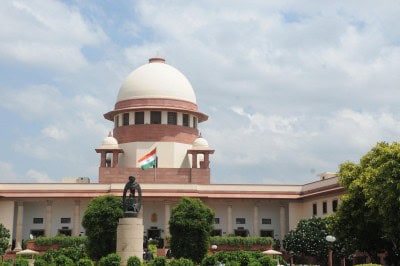 New Delhi, Sep 2 : The Supreme Court on Wednesday observed that there is no dearth of power with the RBI, as the petitioners’ counsel argued that banks are free to restructure loans but not at the cost of penalising honest borrowers by charging interest on deferred EMI payments during the moratorium.
New Delhi, Sep 2 : The Supreme Court on Wednesday observed that there is no dearth of power with the RBI, as the petitioners’ counsel argued that banks are free to restructure loans but not at the cost of penalising honest borrowers by charging interest on deferred EMI payments during the moratorium.
Senior advocate Ranjit Kumar, representing the Shopping Centres Association, contended before a bench headed by Justice Ashok Bhushan that shopping centres are closed, yet are paying the employees. The bench replied there is no dearth of power with the RBI, and no one is denying that. Kumar contended that pharma, FMCG and Internet companies did very well, but industries like his client’s did very badly. “We are entitled to relief”, submitted Kumar.
Senior advocate Rajiv Dutta, appearing for one of the petitioners Gajendra Sharma, submitted that his client thought everything was okay when EMIs were waived off, but the government ended up charging compound interest. “A kind of double whammy for us (borrowers)”, submitted Dutta.
Senior advocate K V Viswanathan, representing CREDAI Maharashtra and the Association of Power Producers, said this is not an ordinary situation for banking transactions and the power sector is extremely stressed. He insisted that the top court should direct banks to forego their profits because this an extraordinary situation, and there is 15 to 20 percent reduction in demand, as customers are not taking power. The bench asked Viswanathan to submit a note on his arguments, which the bench will continue to hear.
The Finance Ministry in an affidavit has informed the Supreme Court that a waiver of interest on interest during the moratorium would go against the basic canons of finance, and the August 6 RBI circular permitted lenders to allow a moratorium of up to two years. The affidavit was filed in response to a bunch of petitions demanding waiver of interest, or waiver of interest on interest on the deferred EMIs during the moratorium period.
–IANS/
–ss/bg

